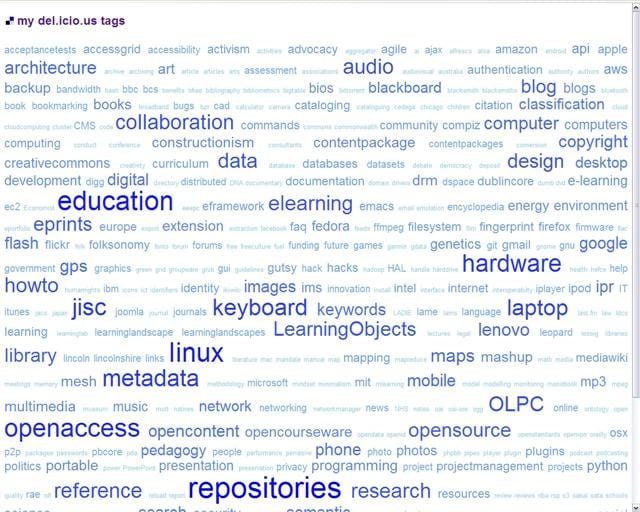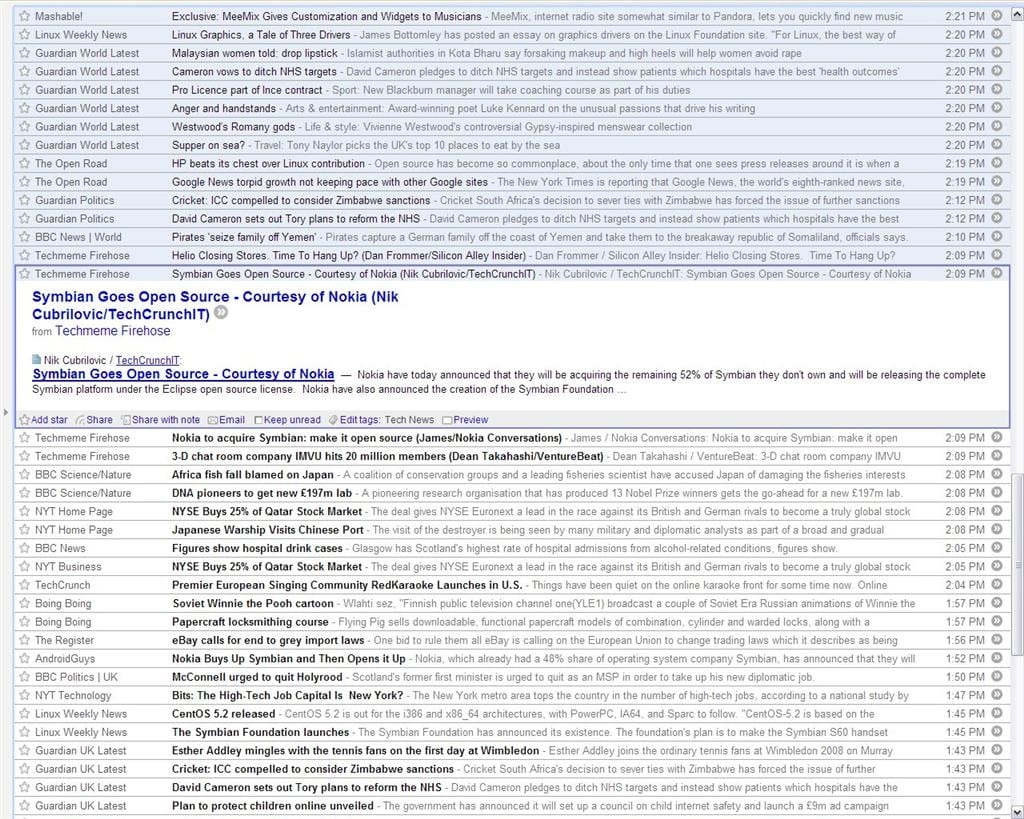Back in the office, following a week away at the Open Repositories conference.
The last couple of days were spent in EPrints sessions, as that is the repository software we use here at Lincoln. I found the first session most interesting as the new features in EPrints 3.1 were discussed. The linked page explains in detail the changes in v3.1, but in summary they provide much more control for repository managers through a web interface, rather than editing config files directly. Les’ slides give a nice overview.
The following session on EPrints and the RAE generally reflected the experience we’ve had using EPrints 2 for the RAE last year.
A session on repository analytics was a very useful overview of using Google Analytics, AWStats and IRStats to measure the various uses of an EPrints repository. Very useful, in particular IRStats which has been developed at Southampton for EPrints. I look forward to installing it.
The final sessions were mainly aimed at developers with a knowledge of Perl. I found the session on how to write plugins for EPrints 3 clear and interesting, but not especially useful as I don’t understand Perl. Still, it was obvious, even to me, that with a basic knowledge of programming, plugins could be written quite easily. I think it’s important for repository managers to immerse themselves in the technicalities of repository development even if they don’t understand much of the detail. Just by sharing ideas and questions with developers, you get a better understanding of what is involved in rolling out new features and a sense of what can be achieved within given resources.
On the whole, the conference leaned towards the technical rather than the strategic and managerial aspects of institutional repositories. There were a lot of developers present and the number of technical projects discussed seemed high. Personally, I appreciated this and came away with a good sense of where the development of repositories is going. It would have been good to have had an event which explicitly aimed at bringing both developers and repository staff together.
Finally, I do wonder whether the open access repository community would benefit from engaging with developments in Enterprise Content Management, as there is a great deal of overlap, having to face similar issues around workflow, IPR and technical standards. Perhaps there are universities evaluating the open source Alfresco ECMS as a repository platform. If so, I’d like to hear about them.
Next year, the conference is in Atlanta, USA.

